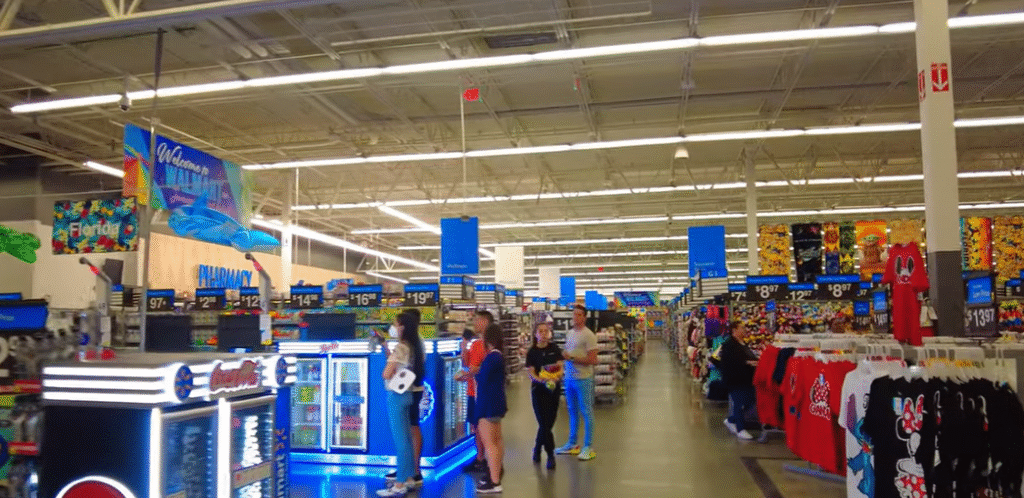A deeply human aspect of the nature of work was made clear by the Haro v. Walmart settlement: justice can depend on minutes rather than hours. The case concerned Walmart’s failure to pay California workers for waiting before they could clock in for required COVID-19 screenings. These brief moments, which thousands of workers repeated every day, served as the basis for a $5.2 million legal reckoning.
Plaintiffs Rochelle Ortega and Amado Haro contended that these screenings were unpaid labor under the Fair Labor Standards Act. Their position was very clear: if an employer requires a task, it should be paid for. Many employees felt that Walmart’s decision to implement a flat five-minute pay adjustment per shift was insufficient because screenings frequently took longer than that. When multiplied over a workforce of more than 100,000, what might have seemed administratively insignificant became legally significant.
The class action was resolved in early 2025 when Judge Sheila K. Oberto approved a $5.2 million settlement. After accounting for legal fees and administrative expenses, about $2.7 million of that total was given directly to employees. Even though many employees’ checks were only one-digit amounts, the payment had significant symbolic meaning. It signaled an understanding that every minute of necessary labor is valuable and that businesses of all sizes are responsible for accurate wage compliance.
Profile Information
| Category | Details |
|---|---|
| Case Title | Haro et al v. Walmart Inc. |
| Plaintiffs | Amado Haro and Rochelle Ortega |
| Defendant | Walmart Inc. |
| Filed In | United States District Court, Eastern District of California |
| Case Number | 1:21-cv-00239 |
| Settlement Amount | $5,200,000 |
| Court Decision Date | January 8, 2025 |
| Presiding Judge | Magistrate Judge Sheila K. Oberto |
| Nature of Suit | Fair Labor Standards Act – Unpaid Wages |
| Reference Link | https://www.govinfo.gov/app/details/USCOURTS-caed-1_21-cv-00239/USCOURTS-caed-1_21-cv-00239-20 |

For Walmart employees, this case was about respect rather than a financial windfall. Waiting in long lines at the beginning of each shift, sometimes in extremely hot weather, just to be allowed to go to work was a tiring experience for many. On paper, Walmart’s standardized solution—a preemptive time credit—was remarkably effective, but in reality, it was rigid. Workers claimed that this standardized method did not account for the reality of different store sizes and screening configurations, where some customers had to wait a lot longer.
In the retail industry, where timekeeping procedures have long been a silent source of conflict, the legal dispute touched a raw nerve. This conflict was exacerbated by the pandemic, as businesses rushed to quickly modify safety procedures. The Haro case showed that even well-meaning systems can inadvertently underpay employees, despite Walmart’s insistence that its policies were compliant. Employers found it to be an especially helpful wake-up call, demonstrating how operational shortcuts can result in expensive reputational setbacks.
The settlement was praised by labor activists as a strikingly successful step in defining micro-labor accountability, which holds that workers should be treated fairly for every minute they spend carrying out their assigned tasks. This idea reflects a larger trend in various industries: an effort to make time, effort, and responsibility be regarded as material resources. Additionally, in order to prevent such disputes, payroll systems are becoming more automated and moving toward digital transparency.
The ruling represented more than just a legal resolution for Walmart. It turned into a lesson about the price of perception. In its public statement, the retailer framed the settlement as a means to “move forward efficiently” and underlined its dedication to justice and collaboration. In its corporate hallways, however, the case provoked reflection. According to reports, Walmart has since reviewed its time capture techniques and pre-shift protocols to make sure that even brief activities are recorded more accurately.
The case had cultural ramifications that went well beyond courtrooms. Workers posted humorous images of their settlement checks, which ranged in value from a few dollars to roughly twenty, on social media sites like Facebook and Reddit. Some saw it as long overdue recognition, while others referred to it as “gas money justice.” Even though these posts were humorous, they had deeper social significance, showing how online platforms can magnify minor triumphs and turn personal experiences into group approval.
The significance of perseverance was also emphasized by the Haro settlement. Haro and Ortega’s pursuit of their claim exemplified the silent bravery of regular employees who defy institutional norms. Their actions served as a reminder to many that patience and the willingness to channel frustration into organized advocacy are often the keys to progress. It’s a message that speaks to people in all sectors, especially those who believe corporate bureaucracy makes it easy for them to be ignored.

